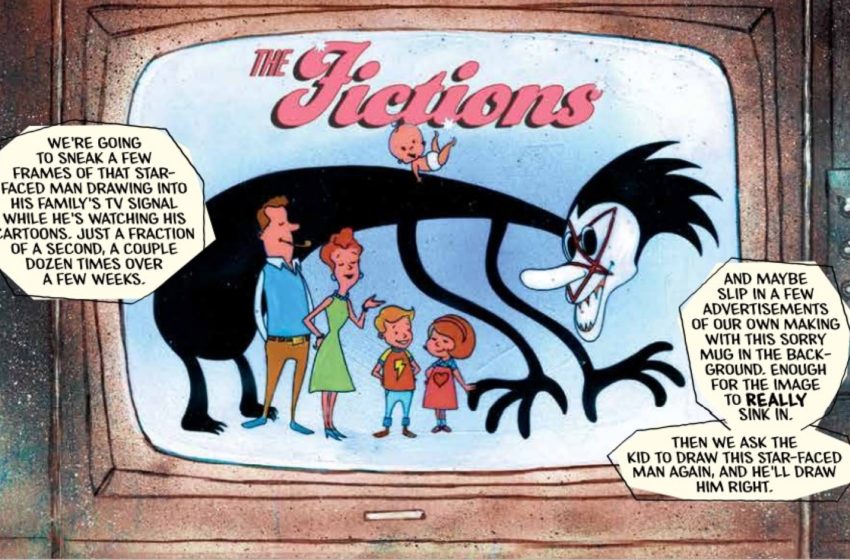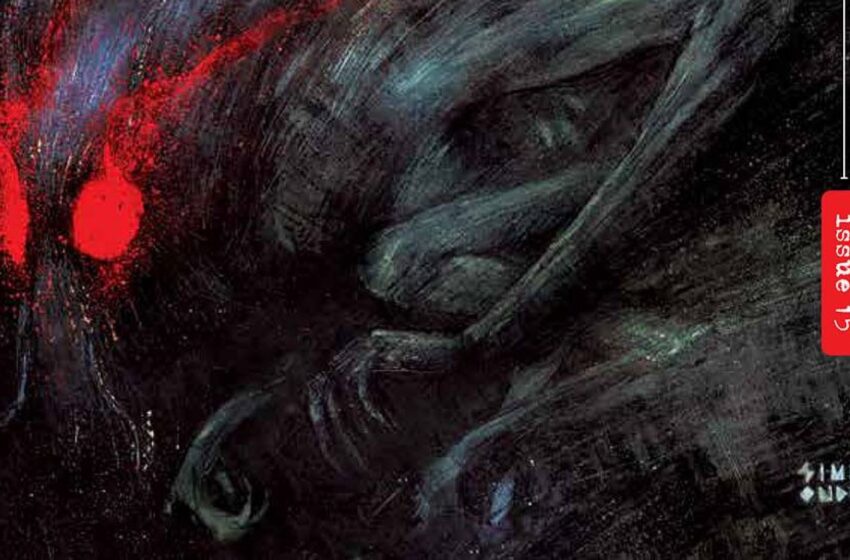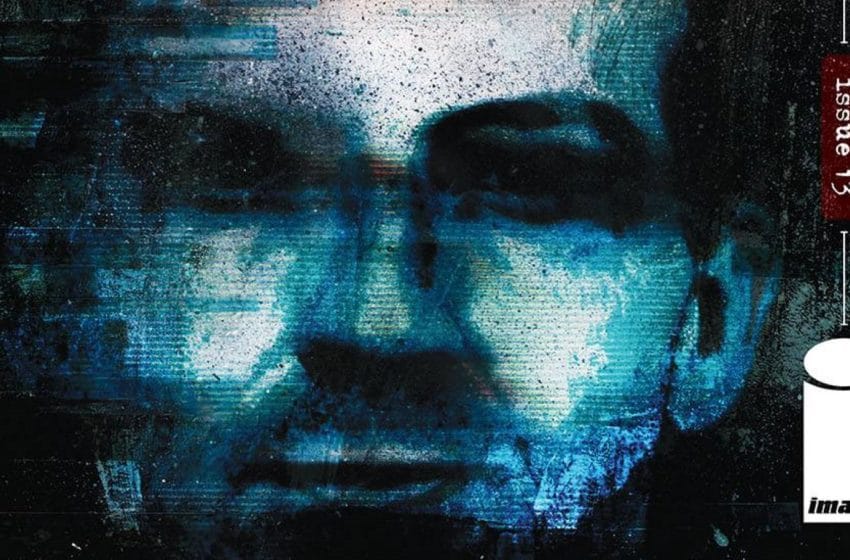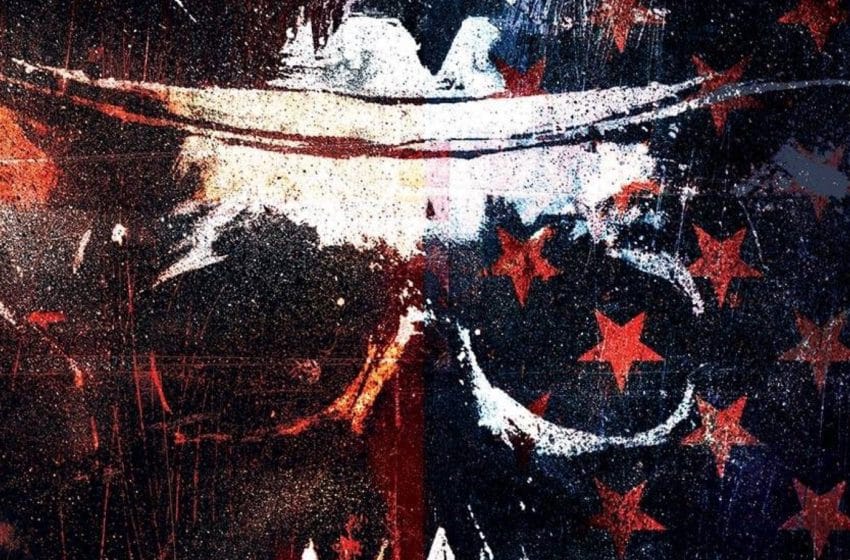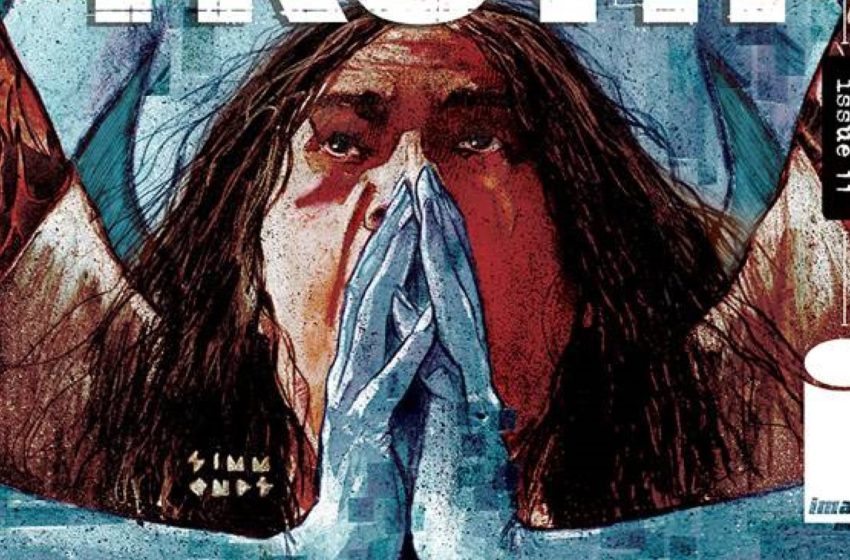What if you could sneak ads into someone’s media and influence their consumption without them even knowing it? Like Inception but with advertising. Good thing that doesn’t exist. Or does it? It’s Department of Truth #9 by writer James Tynion IV, artist Martin Simmonds, letterer Aditya Bidikar, designer Dylan Todd and editor Steve Foxe.
Will Nevin: Here’s a weird place to start, Forrest: Did you know that subliminal advertising isn’t really a thing? I mean, we know what the concept is — inserting stills into moving images to influence the brain on an imperceptible level — but there’s no proof that it works or that it’s actually been attempted on a major commercial level. Sorry to burst any bubble you may have had there. At least we’ll always have the hamfisted work of George W. Bush campaign commercials and Zack Snyder’s super fuckin’ subtle imagery in Man of Steel. [Grote’s note: Don’t forget that time Zack Morris used subliminal messaging to get Kelly to ask him to the dance.]
Forrest: Will, who needs subliminal advertising when I’ll buy any video game that trends on Twitch for more than a single minute?
Will: It’s only money, right? How much could a video game cost, Michael — I mean, Forrest? Of course, we’re only talking subliminal ads because of Hawk Harrison’s work to create what we perceive as reality — and on that note, I guess it doesn’t matter that these ads don’t work because Hawk can make them work, right? Anyway, Department of Truth #9 is more or less a dialogue between Hawk and our man Cole, with a lot of good stuff, a lot of beautiful stuff and some stuff that just hit me the wrong way.
The Good Stuff

Will: I guess this is becoming the Hawk arc, eh? He’s an interesting character that has more depth to date than Lee (although he comes with plenty of inherent baggage) or Ruby (still time for her to get some backstory), and in reading this issue, he reminded me most of a ratfucker, someone who will stoop to any level to win a political campaign.
Forrest: You know, I see the political underpinnings, but I would also say that Hawk sees himself as a soldier. He’s fighting a Cold War, appropriately both real and imaginary, to preserve his American way of life (which includes white kids watching cartoons, apparently). He’s hawkish, moored and unflinching, and that’s a really inherently interesting counterbalance to the more adrift Cole.
Hawk is also an absolute bastard, which we’ll get into later, but I think it’s an important, deserved narrative tension — not everyone on your ideological side is a “good guy.” Maybe he needs to be steadfast to not fall susceptible to all of the things he and Cole are discussing (Hawk is very well read) but maybe he’s also just more comfortable being in opposition to something — a very American instinct.
Will: It’s interesting that Hawk’s signature visual element is an upside down American flag, a thing that’s historically signalled distress. He’s knowledgeable — but he’s also a contrarian ass.
The Pretty Stuff

Will: Tynion’s work on this book is so engrossing, I think it’s easy to forget Simmonds’ stellar contributions, and this issue, from a visual storytelling standpoint, was the best to date. (Leaving aside for a moment the Deviations — I think those have to be judged individually since they’re one-offs.) And while I’ve complained about the layouts before, I thought they all worked here. In short, this was the total visual package.
Forrest: I would love to know about Simmonds’ process. How much of it is practical, how much of it is digital? Do he and Tynion discuss the more nuanced visual additions, or does Simmonds impart those himself? They both come across as incredibly well read and versed, narratively and visually, and the book reflects their shared knowledge well — a good thing for a series that’s almost entirely (especially in this issue) about symbols, mantras and their effects. He makes what would normally be uninteresting travel scenes rewarding, playing out like the red lines of yarn being unwound and pinned to yet more and more imagery in parallel with Hawk and Cole’s car propelling forward.
I felt really unnerved in that opening scene where Cole is being interrogated, his childlike fear reflecting off the obfuscated but menacing sketchiness of a coaching, potentially cannibalistic interrogator. We know Cole is “OK” in the present day, but there’s something about the immediateness of the child endangerment there that feels both very risky and very rewarding for the story’s purposes.
Will: Those air quotes in print are doing a lot of work there. I think Cole is very much not OK, and things are going to go boom if he ever finds out how much Hawk has personally fucked with his brain.
The Questionable Stuff

Will: So this is a tough conversation to have, but I think it’s an important one. As a queer writer, Tynion has license to examine homophobia and all of its attendant nastiness. The book’s editor, Steve Foxe, is a gay man. That being said, how many times does Hawk Harrison need to say f*g in one issue? The point is driven home so hard and so often that it becomes repetitive and eventually doesn’t add any additional heat to Hawk as a heel. The more I (a fellow queer) think about the language, the more irritated I become.
Forrest: I’m a nonbinary queer myself, so we might actually have a limited view on this critically speaking, but I was also frustrated by it. I think being mad for Cole in that scenario is what Tynion meant to do, and it succeeds on that front, but I also think it’s a surprisingly one-dimensional take for a story that is normally anything but.
This issue inadvertently forwards Hawk’s homophobia as his one and only irredeemable quality, but I don’t get the impression that’s what the creators intended. We’ve already seen that he’s not just a homophobe. He’s violent, misogynistic, ethnocentric and diminutive, but the overwhelming focus on Cole’s perception of him undercuts those things. Have him put a cigarette out in his dinner, yell at a taxi driver, start talking about immigrants — anything would get the point across, and would also lessen the narrow homophobic view of the book that is narratively and emotionally draining.
Will: “Exhausting” is probably the word I would pick, and I know it doesn’t have to be that way. And, again, Tynion has every right in the world to explore what I’m sure is something personal — but it’s personal to a lot of people. But a smidgen of it — much less than what we got here — goes a long way.
Cole’s Endgame
Will: Thinking about the intro — going back to the Satanic Panic and Hawk’s direct involvement with Cole’s trauma — what do you think Cole will do when he finds out Harrison was responsible for this? That is where we’re going, right?
Forrest: On that front, and in opposition to the dubiousness of subliminal messaging, one thing that absolutely does work, as we see here with a childhood Cole, is witness intimidation and tampering. This issue removes any of Hawk’s benefit of the doubt as far as I’m concerned, and we might be well poised for an arc exploring what happens when someone tries to quit the Department when they’re this far in should Cole find out. That’s compelling.
Will: Oh hell. Cole going rogue? That would be fun.
An Eye for an Eye, A Truth for a Truth

- A lot of the discussion about symbols and cultural significance being translated between peoples falls squarely in line with the study of memetics, something Tynion is familiar with from his previous book Memetic (and, yes, it’s the whole Metal Gear Solid thing).
- Eugenic (another book from Tynion that explores homophobia) is another quality read.
- We would be remiss not to mention Billy Bat, a manga series from Naoki Urasawa that predates Department and covers a lot of the same ground. A good handful of the CXF team have been reading and enjoying it!
- Hawk’s mention of Lee’s own Tulpa is a reference to Mothman and the tragic collapse of the Silver Bridge in Point Pleasant, West Virginia. Mothman is Forrest’s first and one true supernatural love, and one they’re also sure is going to convince Will they’re a lost cause when we eventually get to it — but fine, Bigfoot first, I guess. [Grote’s note: Fuck yeah!]
- Bombing an airport seems bad.
- Then again, Hawk did specifically target the luggage area — but that was only to get the guts of the otherwise mysterious airport on television.

